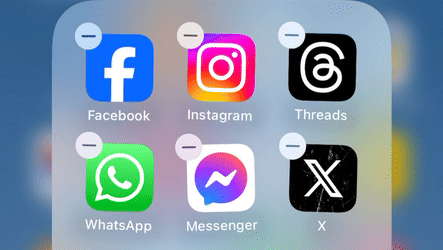After Big Social

Last week Meta—the company that operates Facebook, Instagram, WhatsApp, and Threads—changed their Community Guidelines in a way that’s designed to appease the incoming Trump administration. Rules that guided moderation decisions to remove hate speech based on gender and immigration are now lifted. They changed it for just those two categories of hate speech, gender and immigration.
Right wing politicians and their supporters will capitalize on these policy changes and Meta’s products will become more of a vector for online harassment and for organizing physical violence. One detail that especially concerns me is how Meta removed all mentions of “offline violence” that originates from online hate speech. In other words, Meta has intentionally made hate crimes permissible to organize on its networks.
Meta has an established track record of allowing its platforms to incite violence, in Myanmar against the Rohingya ethnic minority and elsewhere. I’m feeling uneasy about how these changes will accelerate the scapegoating of trans, nonbinary, and other gender diverse people in the United States, and anyone whose appearance or accent is deemed “foreign” to white supremacists.
I encourage you to spend some time with Erin Kissane's essential series, Meta in Myanmar. Part 4 opens like this:
The Atlantic Council’s report on the looming challenges of scaling trust and safety on the web opens with this statement: “That which occurs offline will occur online.”
I think the reverse is also true: That which occurs online will occur offline.
Our networks don’t create harms, but they reveal, scale, and refine them, making it easier to destabilize societies and destroy human beings. The more densely the internet is woven into our lives and societies, the more powerful the feedback loop becomes.
Practically speaking, I now regard Meta and its products as untrustworthy. By making their online properties unsafe for people I love and care about, those spaces are now unsafe for me as well. It’s part of a larger pattern: deleting trans and nonbinary themed Messenger themes and removing tampons from the men's bathroom. Would I frequent a store or cafe with a “no trans people” or “no immigrants allowed” sign? No, I would not, it’s abhorrent.
Where to next? The Fediverse.
I’ve announced on Facebook, Instagram, and Threads my plan to withdraw from those networks by February 6th, allowing some time for me to reconnect with friends elsewhere. (If you’re looking to connect elsewhere, I’ve linked to some social networks I am using in my contact info.)
I’m intentionally investing my attention in non-corporate, smaller scale online spaces. I realize that this divestment will seem unworkable for many people whose income and professional lives are entangled in mainstream social media. Others may just not feel ready to abandon their follower counts and migrate to something new. To put a finer point on it: for many people things may need to get worse, more harms may need to manifest, before it will seem obvious to delete Instagram.
Taking seriously the online/offline feedback loop quoted above, consider that embracing good governance and safety in your online spaces is a material way to prefigure the same things happening offline. If you want to build a better society in general, you can start with the online spaces you inhabit.
The Mastodon instance I use, social.coop, is operated as a cooperative. Members collectively own it and run it similarly to a food coop. We pay sliding-scale dues and governance decisions are made using a tool called Loomio, using threaded discussions and polls. Mastodon is a federated network, part of what’s called the Fediverse. You can join other Mastodon servers, or Pixelfed (similar to Instagram), or Lemmy (similar to Reddit), or Friendica (similar to Facebook). Each of these Fediverse services is designed to interoperate with each other, so joining one strengthens the social value of all of them.
If you’re feeling even more adventurous, sign up for Izzzzi (and then tell me your username).
I am going into this clear-eyed; I’m going to end up losing touch with a lot of people. For many of my contacts, Meta controls the only connection we have. It’s a real loss, withdrawing from communities that I’ve built up over the years (or decades in the case of Facebook). But I’m also finding new communities with different people on the networks I’m spending more time in. Those are exciting in part because of the shared values that brings people to alternatives like Mastodon.
Yes, I’m also on Bluesky. But I’ve been burned enough times—Flickr, Twitter, Instagram—that I don’t see how it can avoid a similar fate. (It’s not going to be through decentralization.) I don’t want to sugarcoat Mastodon—it’s much smaller, it has some real usability challenges, and its lack of diversity is a problem. The benefit of the Fediverse is that it isn’t a property that can be sold and/or enshittified like Big Social. Its problems are going to take work to improve, and that’s what I’m advocating we do together.
